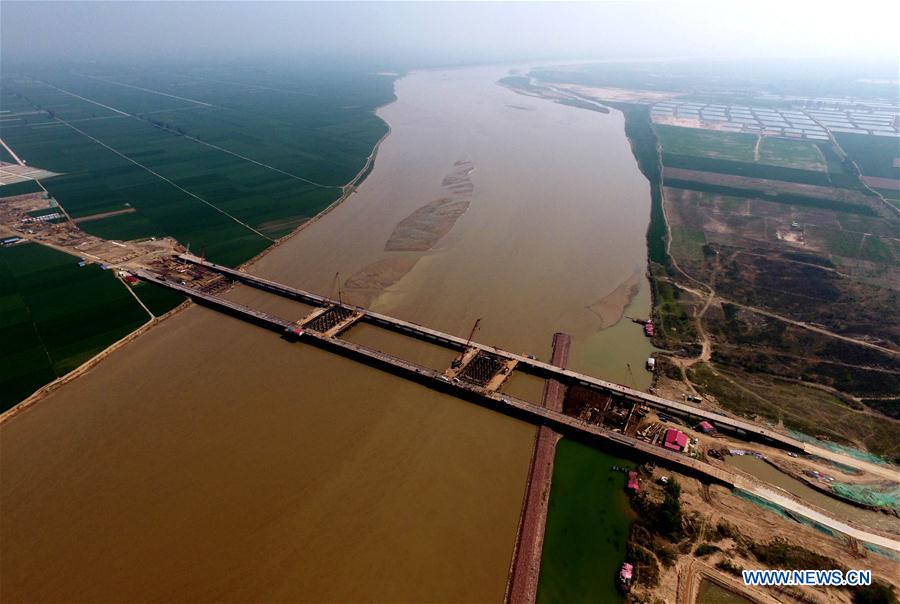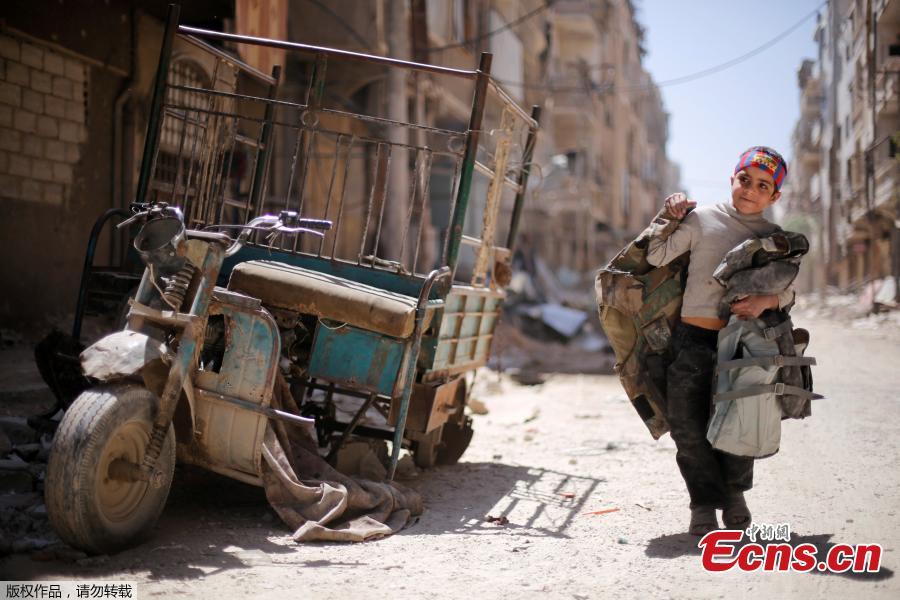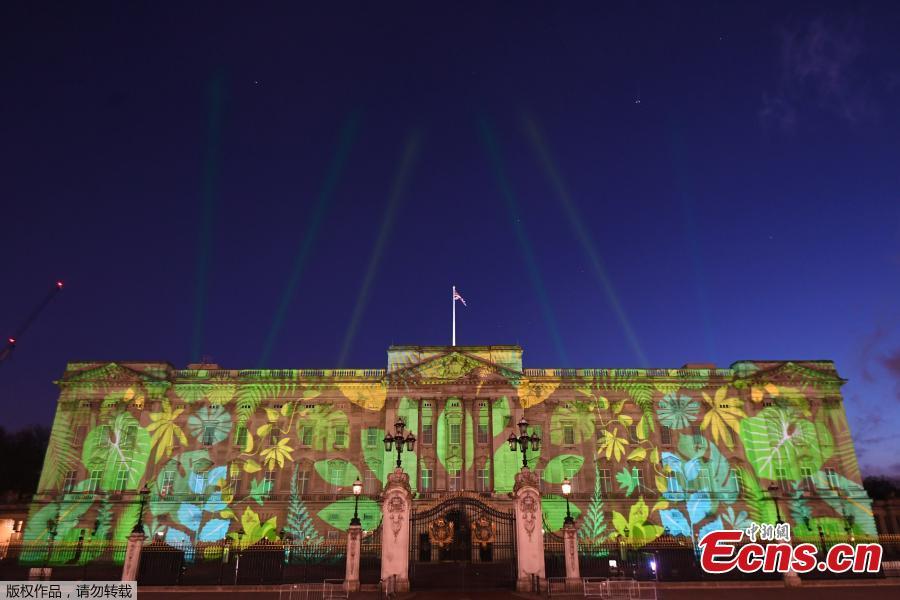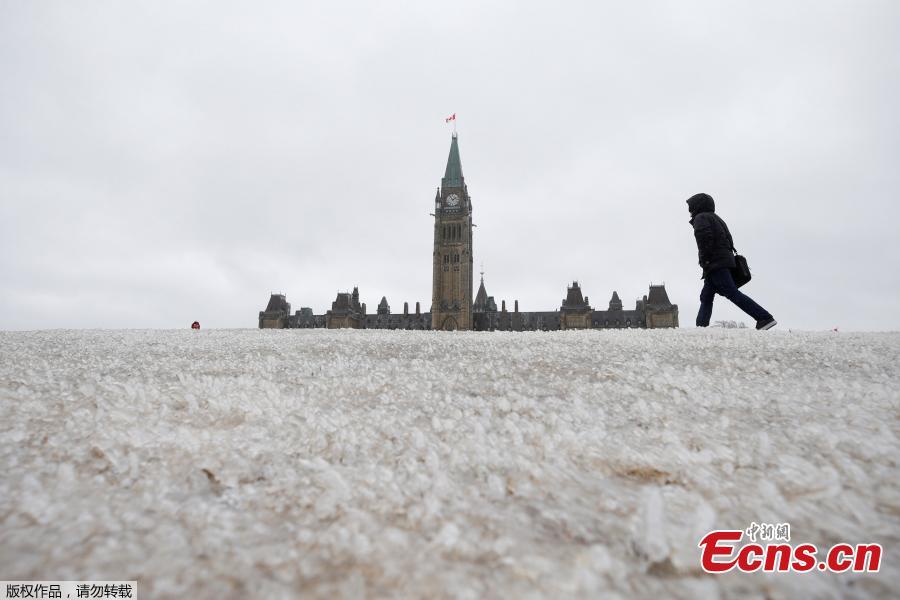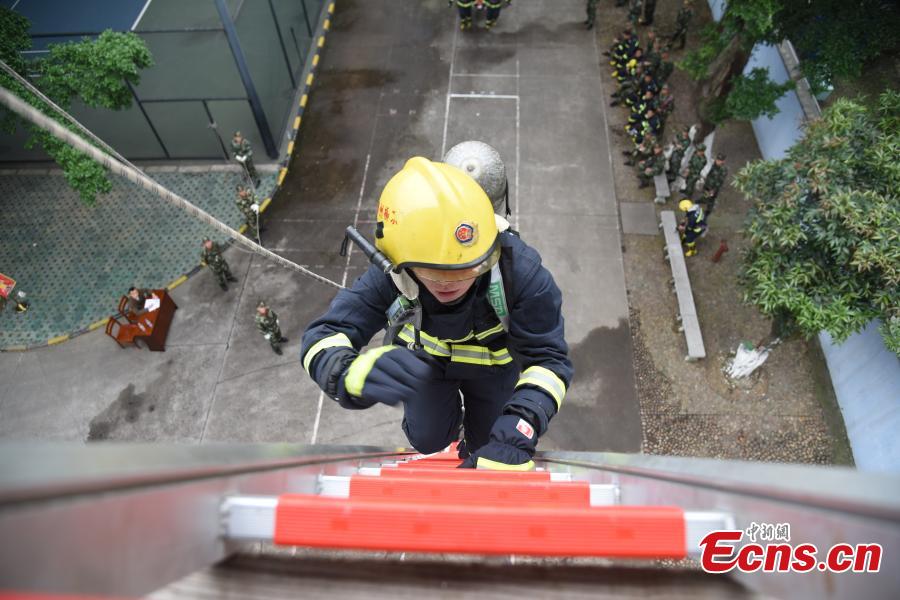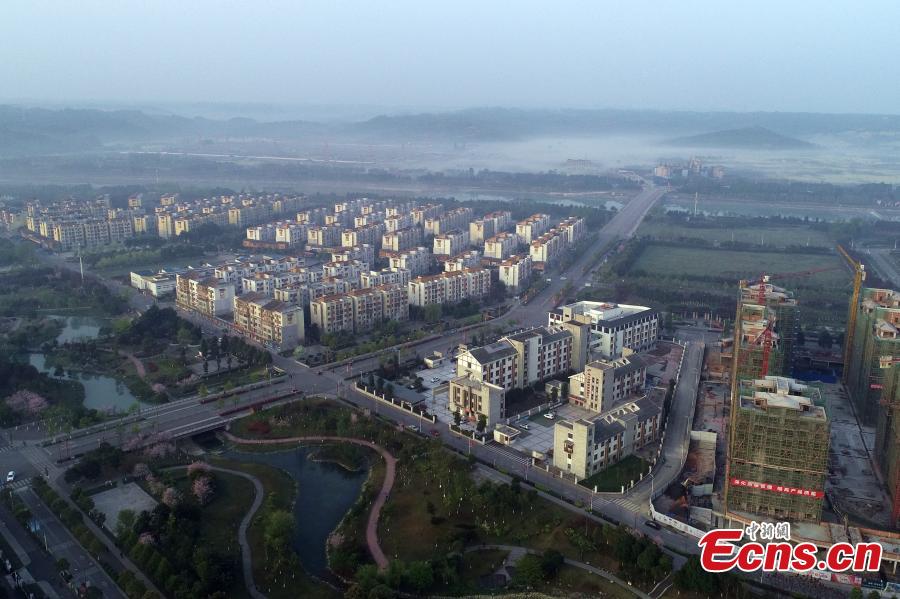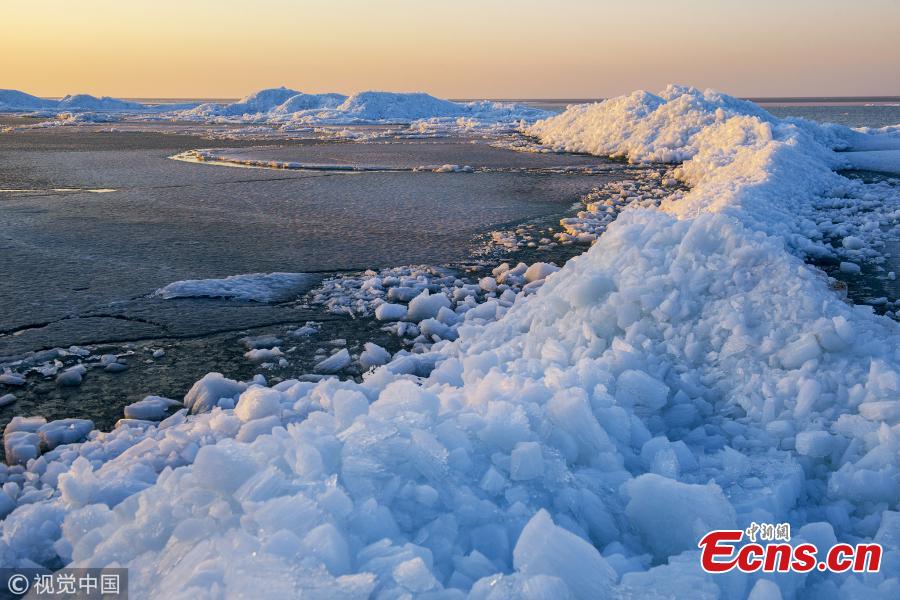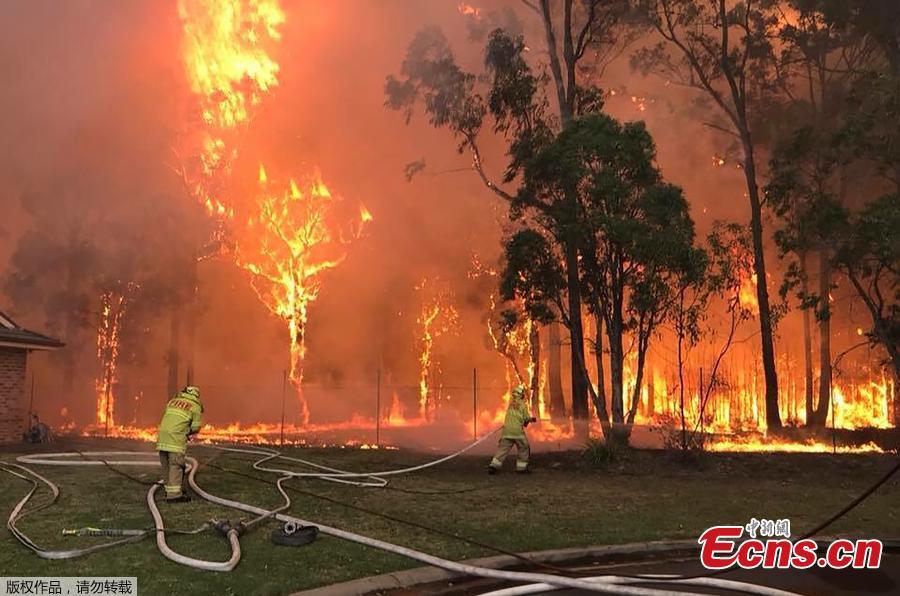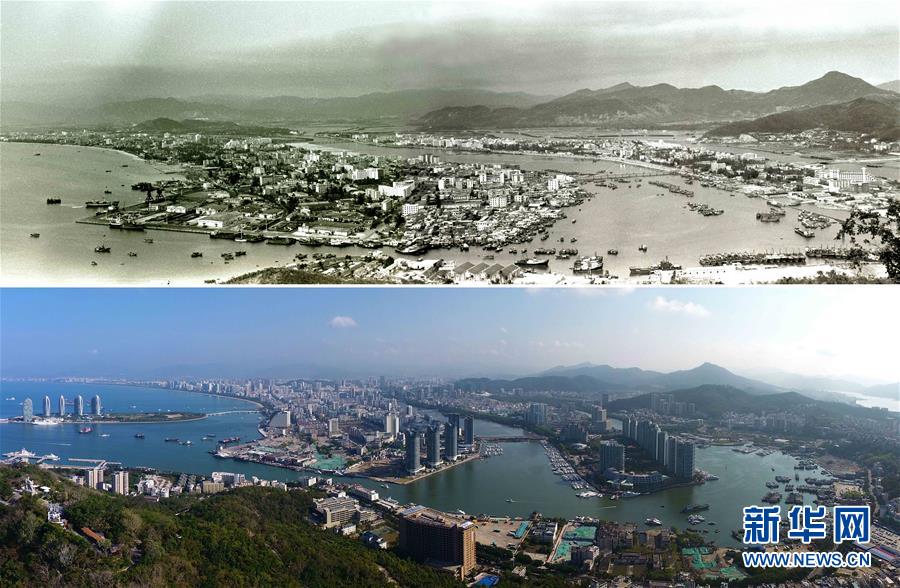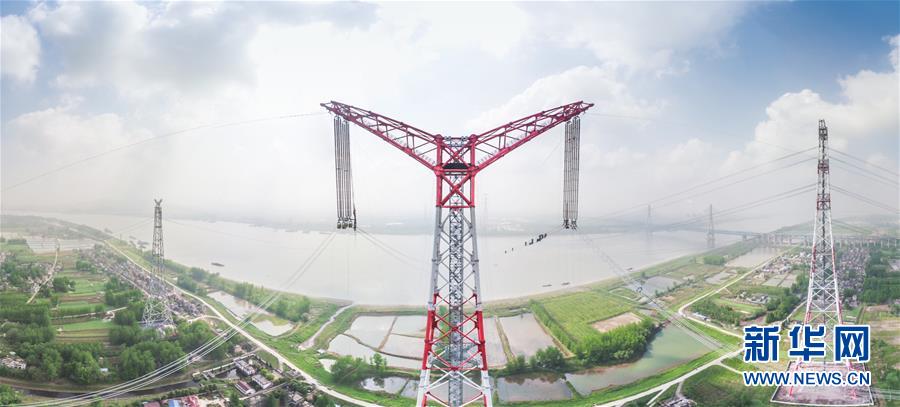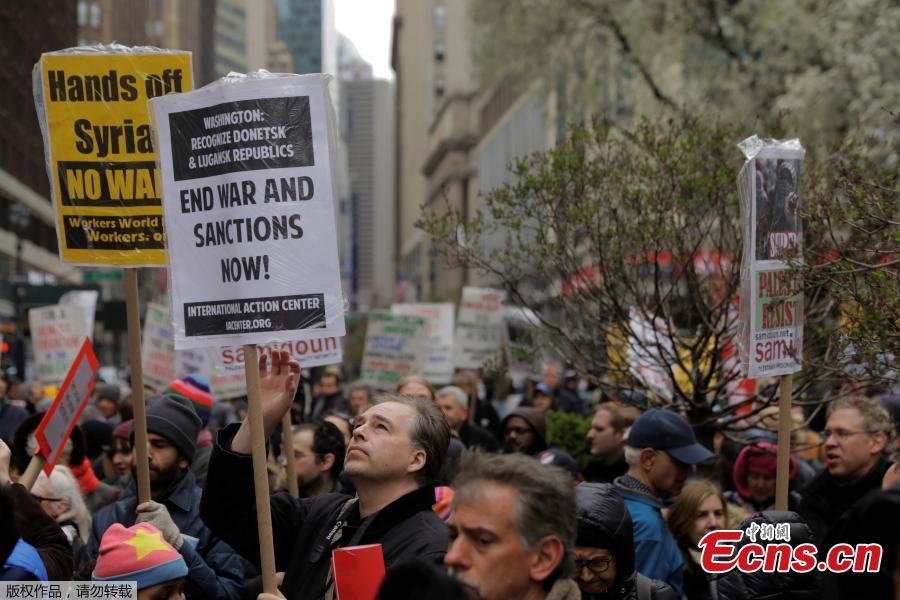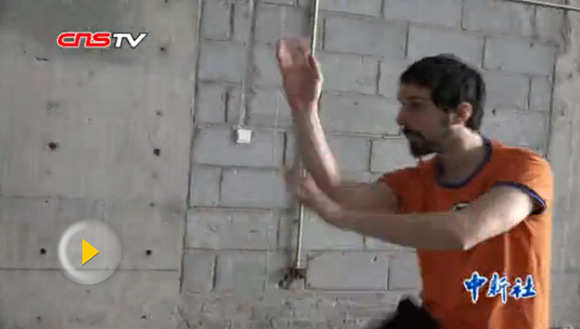Organized by campaign group Stop the War Coalition, the London demonstration was the latest in a string of events protesting Saturday's military action taking place across Britain recently.
The group said in a statement posted on its Facebook account that the "overwhelming majority" of British people oppose the illegal "gesture bombing" targeting Syria, which will have further impeded the development of peaceful international relations.
John Rees, co-founder of the coalition, told Xinhua that the U.S.-led strikes on Syria would destabilize the region and further the conflict between Russia and West.
"We think our government is making it more dangerous and more unstable. That's why we come here today to oppose a military action," he said.
Protests were also held in Bristol, Exeter, Swansea and Milton Keynes on Monday. Rees said if British government carry on further military strikes, they would definitely call national demonstration like they did to protest the Iraq war in 2003, which was the biggest demonstration in British history. "If this government continues this route, I think they will see our position on that scale," he said.
London citizen Dick Wingfield said he is angry about what his country is doing as there is no evidence to support the Western powers-alleged use of chemical weapons by Syrian government.
"Like the Prime Minister today on the radio says about Syria is conducting chemical weapons, but there is no evidence to that at all. I don't think UK should involve in this issue, it is not our place to cut hands in," he said.
The Syria strikes also drew wide criticism from the international community, which called for diplomatic and political solution to the Syrian issue.
Czech President Milos Zeman condemned Saturday the U.S.-led air strikes on Syria as his spokesman Jiri Ovcacek officially announced that "a military solution to the situation should be the last thing to do."
Peace and Justice Works of Portland, a non-profit organization that organized the local protest, said on its website: "The U.S. has no United Nations authorization, much less Congressional authority, to wage war on the government of Syria."
Cyprus, from where the four British warplanes hitting targets in Syria had taken off, distanced itself Monday from the British military base on its territory.
"It is well known that the bases are British sovereign area," government spokesperson Prodromos Prodromou told the state radio.
"Cyprus, as a member state of the European Union (EU), sides with the position of the EU and considers that the use of chemical weapons is unacceptable. But we wish that this issue would be settled at the diplomatic level," he said.
Austrian Chancellor Sebastian Kurz on Saturday expressed "serious concern" for the escalation of the conflict in Syria, urging the responsible actors to hold political talks under UN mediation and to comply with international law in order to alleviate the suffering of the people of Syria, who have already suffered enough, said Kurz.
The Estonian Ministry of Foreign Affairs on Saturday reaffirmed Estonia's support for UN-led efforts to achieve a lasting political resolution to the Syrian conflict.
The ministry also reiterated its firm condemnation of the use of chemical weapons in any circumstance. There was no justification of committing such acts, said the statement.
UN Secretary-General Antonio Guterres on Saturday expressed concern over the joint military action against Syria by the United States, France and Britain, and called for adherence to the UN Charter and international law on the issue.
"As secretary-general of the United Nations, it is my duty to remind member states that there is an obligation, particularly when dealing with matters of peace and security, to act consistently with the Charter of the United Nations and with international law in general," Guterres told an emergency Security Council meeting requested by Russia.
"The UN Charter is very clear on these issues. The Security Council has primary responsibility for the maintenance of international peace and security. I call on the members of the Security Council to unite and exercise that responsibility," he said.
"I urge all member states to show restraint in these dangerous circumstances and to avoid any acts that could escalate matters and worsen the suffering of the Syrian people."










